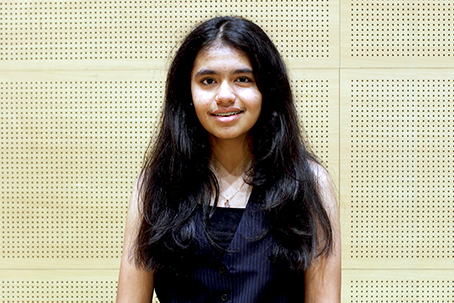
Secretary-General : Kiara Maniar
"Unity in diversity is the highest possible attainment of a civilization, a testimony to the most noble possibilities of the human race."
- Jimmy Carter
Dear delegates and MUN directors,
In today's aggressive political landscape where nations vie for influence and dominance, it can only be the complex interplay of Diversity, Democracy, and Diplomacy that allows them to shape the global view.
The first pillar - Diversity - emphasizes embracing a multitude of cultures, perspectives, and interests, to cultivate a deeper sense of understanding across ideological, religious, and political divides for the common good. However, like every coin has two sides, the same richness of perspectives that diversity brings also gives rise to some of the most poignant conflicts. Depicted in the Bosnian War (1992-1995) in the form of extermination of a religious group, the Bosnian Serb forces with government support engaged in a campaign of ethnic cleansing against Bosnian Muslims (Bosniak) and Bosnian Croat populations. The intolerance, hatred, trauma, and suffering boiled down to violation of international law and human rights. These ideas of exclusion are also evident in the long-standing Israel-Palestine conflict that although elicits significant political rhetoric from both sides, is, at its core, a site of contestation over the major tenet of identity between the two nations, based on historical and religious ideologies.
The second pillar - Democracy - thrives on an exchange of contrasting ideas to spur progress along with respect for individual rights. With governments navigating the balance between power and accountability, the moderation of the degree of power to maintain order taking into consideration individual liberties is key. With profound effects on sociological, political, economic aspects, society’s opinion plays a pivotal role. The Arab Spring movements across Middle East and Northern Africa during the early 2010s displayed the dynamics of democracy to attain for social justice and economic opportunity. The varied results of the Arab Spring including overthrows of some long-standing authoritarian rulers such as President Zine El Abidine Ben Ali from Tunisia, political instability due to proliferation of armed militias in Libya and Syria, and introduction to democracy in Morocco illustrate the unpredictable and nuanced nature of global development.
The final pillar - Diplomacy - serves to bind diversity and democracy. It transcends borders and cultures for maintaining dialogue and negotiating to common consensus thereby demonstrating the ideals of compromise and mutual understanding. History has shown that Diplomacy has enabled unity with the resolution of conflicts, negotiation regarding treaties, and forging of alliances without coercion. The Iran Nuclear Deal illuminates the power of diplomacy to foster cooperation for the unanimous purpose of advancing global security by averting the risk of nuclear proliferation. The negotiation between Iran and six world powers in 2015 showcased the potential of diplomacy to promote peace. However, the catastrophe arising out of the inability to engage in meaningful dialogue has been depicted in the Cuban Missile Crisis of 1962 where the confrontational rhetoric caused a severe escalation of tension, exacerbating the conflict manifold.
The 21st edition of DAIMUN exemplifies this synergy of Diversity, Democracy, and Diplomacy. By discussing a variety of pressing agendas from the political instability in Venezuela and Sudan to excessive monopolization of outer space, we are questioning conventional beliefs of power, sovereignty, and global governance and are re-affirming our commitment to these fundamental principles.
Delegates, your moment is now. Will you seize the opportunity to make your mark upon history?
Warm Regards,
Kiara Maniar
Secretary General
DAIMUN 2024